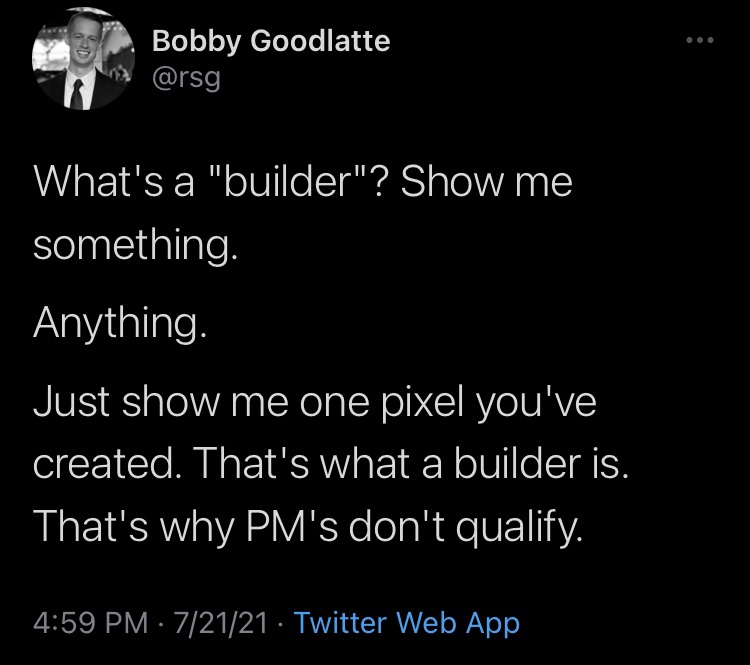I’m lucky to see work from founders at the very earliest stages. If you have a problem you are solving for chaotic world I’m generally interested in seeing it even if it’s just in the idea phase. But you have to show me you’ve got a plan to build a product. Any product is fine. Just show me something! Show me how you have the capacity to build even if you suck at it.

Sometimes it can feel hard to build something, anything, when you are very experienced. This is a problem I’ve seen across all kinds of impressive people. Academics, government folks and higher end finance folks, former c-suite executives. They know what good looks like so anything they can physically make with their own two hands will all look like crap.
I’d even go so far as to suggest there is an inverse relationship between how much you obfuscate your lack of existing product and your credentials. There are other corollaries on that basic theme. How comprehensible your product is right now is inversely related to how extensive your service layer is at the moment.
I see a lot of brilliant, extremely credentialed people solving big problems, but because making money is important they will pitch what amount to service companies without an existing product. But they will use extensive jargon and hand waving visionary opportunities to hide the fact that there isn’t any product layer yet. Which is weird because like eventually I’ll find out right? You wouldn’t want to trick your investors on the state of play.
I’d encourage you to stop trying to hide that fact. Don’t be embarrassed that you can’t make things to your standards. None of us can. New things always look like shit. Just own up to that reality and you will find more help from folks who will want to help make it better. Stop showing me CAGR and TAM and possibilities as a way of hiding that you haven’t built a product yet. It’s ok. You don’t need to have built something great yet.
Admit it. Show me some wireframes and a roadmap. I’ll take that way more seriously. In fact, I’ll probably overweight you showing me exactly what you do have and how you plan to use funds to improve it. That’s how much startup people value just building the damn thing.